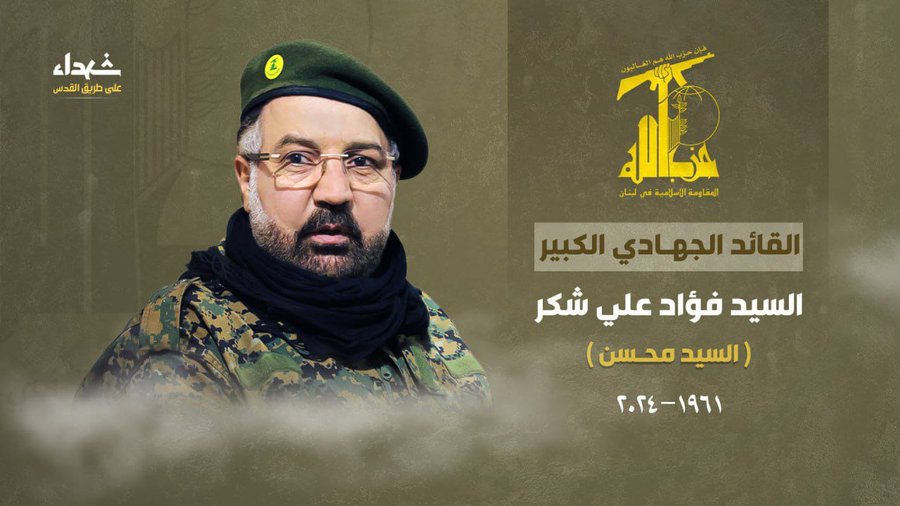One of the pressing questions for Israeli and Western intelligence agencies is who will succeed Fuad Shukr.
In his recent speech, Hassan Nasrallah did not disclose the identity of Shukr’s permanent replacement.
It’s possible that no decision has been made yet, or that Hezbollah is concealing the successor’s identity to prevent another targeted assassination by Israel.
According to Western intelligence sources, Hassan Nasrallah has temporarily appointed Ali Karaki, the commander of Hezbollah’s southern front, to the position of Chief of Staff to ensure that operations against Israel continue uninterrupted.
Since the start of the war, Israel has eliminated several key Hezbollah commanders, including those leading the Radwan, Aziz, and Nasser units.
However, Karaki’s temporary appointment has sparked a succession battle within Hezbollah, with opposition from figures like Ebrahim Akil, head of the Operations Mechanism, and other senior officials.
Shiite sources in Lebanon indicate that appointing a permanent replacement for Fuad Shuker requires coordination with Iran’s Revolutionary Guards.
It is believed that Hassan Nasrallah will seek a veteran with a history of “Jihad against Israel” to fill the role.
However, finding a figure comparable to Imad Mughniyeh and Fuad Shuker—both of whom were assassinated by Israel—will be challenging.
Lebanese Shiite sources suggest that the leading candidate to succeed Shuker is Talal Hamiya, also known as “Abu Jaafar.”
Hamiya, of Baalbek origin, currently commands Hezbollah’s Unit 910 and is a member of the Jihad Council. He was a close associate of Imad Mughniyeh, serving as his deputy until Mughniyeh’s assassination by Israel.
Unit 910 is responsible for orchestrating terrorist attacks abroad, including those targeting Jewish sites in Argentina.
Hamiya was placed on the U.S. terrorist list in 2012, with a $7 million bounty on his head.
Other names mentioned in the succession race include Ali Karaki, currently serving as Shuker’s temporary replacement, and Ibrahim Akil, head of the Operations Unit and a member of the Jihad Council.
Akil was involved in the 1983 attacks against American forces in Lebanon and holds a significant position within Hezbollah.
Like Hamiya, he is also on the U.S. terrorist list with a $7 million bounty, and Israel has made several unsuccessful attempts to eliminate him.
Another potential candidate is Muhammad Haider, a senior advisor to Hassan Nasrallah responsible for Hezbollah’s smuggling network and drug industry, particularly the production of captagon, in coordination with Maher al-Assad, brother of Syrian President Bashar al-Assad.
Maher al-Assad, who commands Syria’s 4th Division, is a notorious drug dealer, often referred to as the “Pablo Escobar” of the Middle East.
Khader Nader, commander of Hezbollah’s Unit 900—its secret police force—also emerges as a senior candidate.
Nader controls Beirut’s international airport and its weapons depots.
The selection of Fuad Shukr’s successor will be conducted secretly by Hezbollah’s Shura Council, similar to how Hamas chose Ismail Haniyeh’s successor after his elimination by Israel.
Ultimately, the decision will rest with Hassan Nasrallah and the commanders of Iran’s Revolutionary Guards.
It is not out of the question that Supreme Leader Ali Khamenei might send Quds Force commander Ismail Qa’ani to Beirut to finalize the decision with Nasrallah.
Surprises could still occur in this closely watched succession battle.




